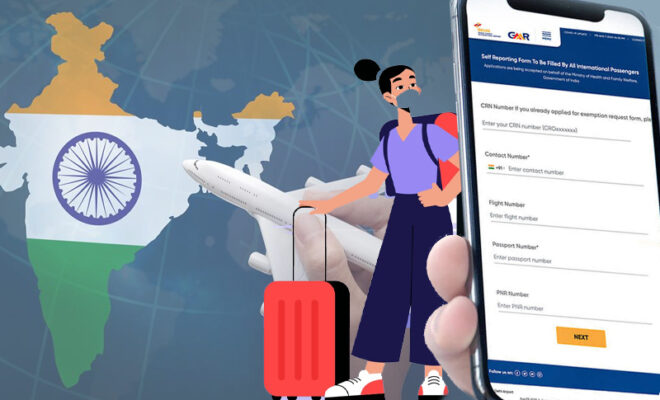India Scrapes Air Suvidha Forms For International Passengers

The Indian government gave relief to the international passengers by scrapping the Air Suvidha forms. Now onwards such fliers won’t be required to submit forms & Covid status.
Beginning on Tuesday (November 22), travelers to India won’t have to complete forms or upload results of negative RT-PCR tests to the government’s Air Suvidha website.
For international travelers, the elimination of this pre-embarkation procedure is probably a relief. It is timely because vaccination coverage is a major factor in Covid-19 becoming an endemic stage.
The requirement that international travelers submit Air Suvidha forms has been abolished in India.
International travelers will no longer be required to submit declaration forms starting at midnight on November 22nd, according to government officials’ announcement on Monday.
“In light of sustained declining COVID-19 trajectory and significant improvements being made in COVID-19 vaccination coverage both globally and in India, the Ministry of Health & Family Welfare has issued revised ‘Guidelines for International Arrivals,’ according to a notice from the Civil Aviation ministry.
A self-declaration form called Air Suvidha was created as a Covid preventative measure and was intended to help with contact tracking during the Covid pandemic.
For all foreign visitors to India arriving at Delhi Airport, it was a contactless approach provided by the Ministries of Civil Aviation and Health and Family Welfare.
The Ministry of Civil Aviation said that the self-declaration will no longer be used starting on November 22.
In August 2020, the Air Suvidha portal went live, requiring all international travelers to enter mandatory information about their trip and Covid vaccination or testing status.
Authorities were also able to determine whether a person was traveling from a high-risk area thanks to the pre-arrival self-registration page.
The Union Health Ministry mandated submitting information on the portal late last year as the Omicron variant of Covid-19 spread.
This information included passengers’ 14-day travel history and negative RT-PCR test reports, which were used to determine whether a traveler was arriving from an “at-risk” country.



